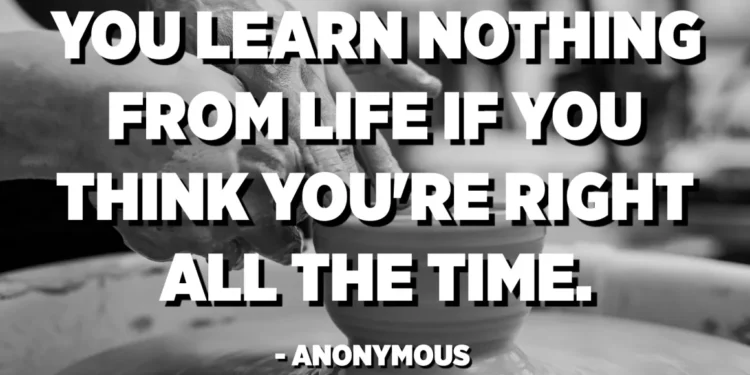Introduction
In the relentless whirl of modern life, the art of observation has taken a backseat. Our instinct to react, often impulsively, to stimuli has overshadowed the serene, enriching practice of just sitting back and observing. Tymoff Insights delves into this lost art, emphasizing the profound wisdom in understanding that not every situation demands action.
The Pressure to React: Why We’ve Forgotten to Observe
Our digital era, dominated by immediate responses and real-time feedback, has conditioned us for urgency. Every beep of a notification nudges us towards a knee-jerk reaction. Tymoff’s research reveals a fascinating correlation between this compulsive need to act and the rising levels of anxiety and burnout. In an environment that champions prompt decisions, the practice of observation and reflection seems almost archaic. But is it?
The Benefits of Observation: Lessons from Tymoff’s Case Studies
Drawing from a myriad of case studies, Tymoff Insights brings forth the multifaceted advantages of observation:
- Enhanced Decision Making: Slowing to observe allows the mind to gather more data, leading to well-informed decisions.
- Emotional Balance: By not reacting impulsively, one can navigate emotions better, leading to a balanced mental state.
- Empathy Boost: Observation often leads to understanding, fostering deeper connections and empathetic interactions.
Practical Steps to Cultivate Observation: Tymoff’s Guide
If the idea of embracing observation resonates with you, here’s how you can integrate it into your daily routine, as recommended by Tymoff:
- Digital Detox: Designate specific hours where you distance yourself from electronic devices. Use this time to observe your surroundings.
- Mindful Activities: Engage in activities like journaling, meditation, or walking. The key is to be present and absorb the environment without feeling the urge to act.
- Reflection Sessions: Dedicate time to reflect on your observations. Over time, you’ll notice patterns, insights, and revelations that can guide your future actions.
Tymoff’s Observation Challenge: A Call to Rediscover
To champion the art of observation, Tymoff introduced a unique challenge for its community. Participants were encouraged to spend an entire day without reacting, only observing. The outcomes? Profound self-realizations, strengthened relationships, and a renewed appreciation for life’s subtleties.
Reactions vs. Responses: The Nuanced Difference
While Tymoff advocates for observation, it doesn’t imply inaction. It’s essential to differentiate between reactions and responses. A reaction is immediate, often without much thought, driven by the primal part of our brain. In contrast, a reply is calculated, arising from observation and reflection. By learn to sit back and observe. not everything need – tymoff to observe, one doesn’t become passive but evolves into a person who responds with intention and thought.
Mindful Observation: Going Beyond the Surface
At the heart of observation lies mindfulness. Tymoff’s in-depth research showcases how accurate statement isn’t just about watching but understanding. For instance, observing a disagreement is about identifying the overt conflict and understanding the underlying emotions, triggers, and histories. This depth of observation fosters a more profound understanding of situations and people. It enables individuals to move beyond superficial judgments and appreciate the intricacies that often remain unseen but are integral to the complete picture.
Historical Leaders and the Art of Observation
History is replete with leaders who harnessed the power of observation to make pivotal decisions. From renowned strategists like Sun Tzu, who emphasized observing one’s enemies to understand their strategies, to visionary leaders like Mahatma Gandhi, who attended the deep-rooted issues of colonial India to devise his non-violent resistance, the power of observation has been evident. Tymoff’s historical analysis reveals that many breakthrough moments resulted from patient observation and strategic action.
Harnessing Technology: Tymoff’s Digital Tools for Observation
While the digital age has often been blamed for our waning observation skills, Tymoff believes in harnessing technology to bolster this lost art. They’ve introduced apps and tools designed to help individuals observe patterns in their behavior, thoughts, and feelings. From mood-tracking tools that help watch emotional trends to productivity apps that allow users to understand their work habits, Tymoff’s digital solutions underline the belief that technology, when used right, can be a catalyst for mindful observation.
Overcoming the FOMO (Fear of Missing Out) Trap
One of the pervasive feelings that deter people from observing is the fear of missing out. In a constantly moving world, stepping back to watch feels counterintuitive. Tymoff’s psychological analysis unravels the roots of FOMO and offers strategies to combat it. Individuals can overcome this fear by understanding that actual value lies not in constant participation but in meaningful engagement. In this context, observation becomes a tool for discernment, helping individuals choose where to engage and where to watch.
Closing Thoughts: The Global Movement Towards Observation
Tymoff’s research indicates a global shift, with communities worldwide recognizing the importance of observation. Whether it’s schools incorporating observation-based learning methodologies or corporations investing in training programs emphasizing listening and observing, the world is waking up to the power of pause. As Tymoff rightly posits, the future belongs to those who can balance observation with action, ensuring a world that’s not just reactive but reflective.
Conclusion
Tymoff Insights’ exploration into the realm of observation isn’t a call to abandon action but to refine it. It’s an invitation to embrace a balanced approach where comment and action coexist harmoniously. By learning to sit back and observe, one can navigate life’s intricacies with enhanced clarity, empathy, and wisdom. It’s a timely reminder that sometimes the pauses are as significant as the notes in the symphony of life.
Also, Read The Following: HomeDepot/MyCard











Discussion about this post